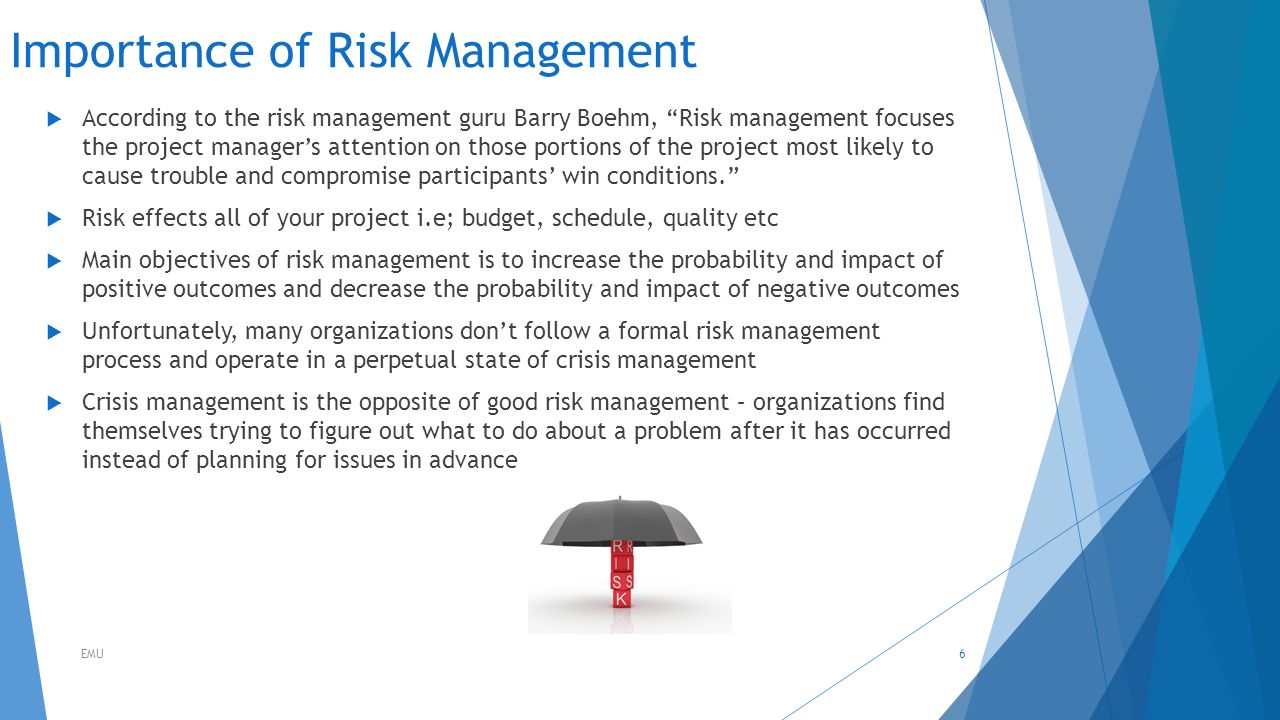Exploring the Increasing Importance of Risk Management in Business Strategy
Exploring the Increasing Importance of Risk Management in Business Strategy
Blog Article
Understanding the Significance of Risk Management in Organization Success and Sustainability
In today's ever-evolving service landscape, the value of Risk Management can not be underrated. It stands as a vital pillar, boosting service success and sustainability amidst a sea of unpredictabilities. By recognizing and mitigating prospective risks, organizations safeguard their capital, foster resilience, and boost public depend on. Just as, it leads the method for technology and growth. Let's unpack this facility subject, exploring just how proactive Risk Management adds to the longevity and success of services.
The Principle of Risk Management in Service
Risk Management, an essential element of company procedures, brings a substantial weight in the success or failure of a company. Services use Risk Management procedures to alleviate the unfavorable effects of these risks. The concept of Risk Management is not a warranty against Risk, yet instead an essential device that advertises operational efficiency and durability in face of unpredictability.
Crucial element of a Durable Risk Management Strategy
Recognition of prospective risks is the primary action, complied with by a detailed evaluation of these threats. After recognizing the gravity of the threats, correct measures ought to be prepared for Risk mitigation. An efficient Risk Management technique also entails consistent tracking and testimonial of the identified threats and the efficiency of the control actions.
Exactly How Risk Management Adds to Company Success

Instance Studies: Effective Risk Management in Practice

Future Fads in Risk Management and Their Implications for Businesses
As the worldwide organization landscape remains to develop, so too does the field of Risk Management. Future patterns suggest a shift towards positive instead of reactive methods, with organizations increasingly seeking to determine and reduce threats before they happen. The unification of technology, specifically AI and big data analytics, will certainly play a critical duty in this transformation. These tools can offer real-time insights, enabling swift and notified decision-making. In addition, ecological, social, and governance (ESG) dangers are predicted to increase in prestige, showing a growing societal concern for sustainability. Organizations that adapt try this out to these patterns and incorporate them into their Risk Management strategies will likely be better geared up for success and sustainability in the unclear future.

Conclusion
In conclusion, recognizing the value of Risk blog Management is essential for business sustainability and success (importance of risk management). Via real-world situation researches and future trends, it's apparent that a durable technique to take the chance of Management is critical in navigating today's complicated business setting.
Services use Risk Management treatments to alleviate the negative effects of these risks. The principle of Risk Management is not an assurance against Risk, but rather a necessary tool that advertises functional performance and resilience in face of unpredictability.
Identification of potential risks is the main step, complied with by a thorough evaluation of these threats (importance of risk management). After understanding the gravity of the dangers, proper procedures should be prepared for Risk reduction. An efficient Risk Management technique also involves consistent tracking and evaluation of the recognized dangers and the efficiency of the control measures
Report this page